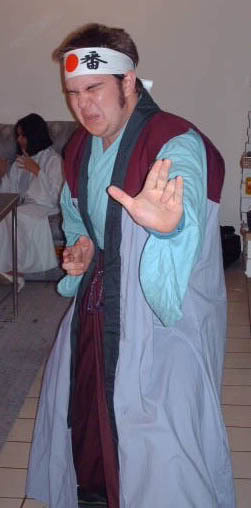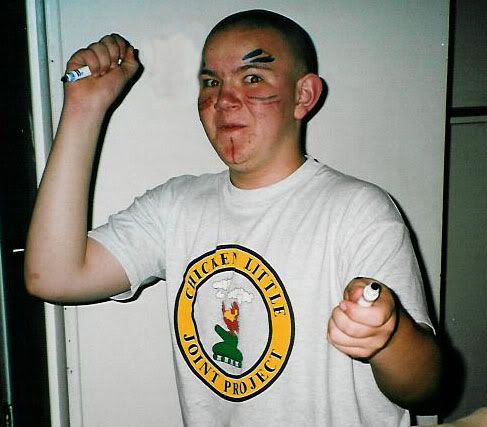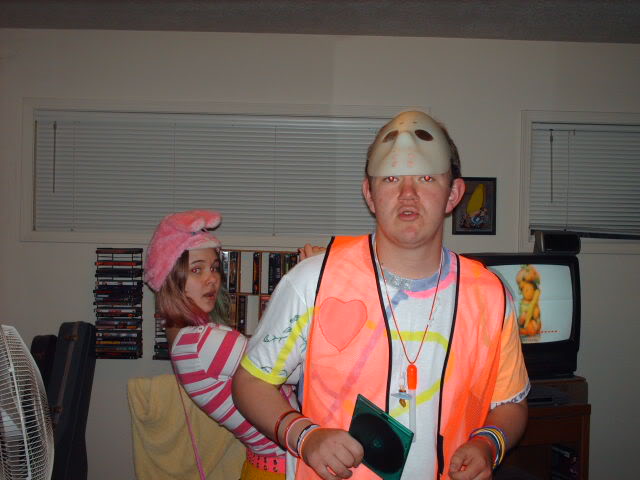
I didn't care how far away stars were. I thought it should be left to those who really are curious or have a need to know. That need to know the distance of stars has never been good for anything at all yet, as far as I know.
It wasn't long after that (six years) that I myself was a teacher in that same school. Luckily for me and for all the world, I wasn't teaching algebra or astronomy. But still I would be asked "Why do we have to learn this?" Sometimes I gave a serious answer, and sometimes a philosophical answer. Sometimes I made light of it. Sometimes the honest answer was "You don't have to learn this, but I have to try to teach it so I can get paid." Or "Only some of you will need to know it, but they don't know which ones yet, so I have to say it to everybody."
Then one day, the question came phrased a new and better way: "What is this GOOD for?" The answer I gave then changed my life and thinking. I said quickly "So you can get more jokes." I think we were reading a simplified Romeo and Juliet at the time. I could've gone into literature and history and fine arts, but the truth is that the best and most immediate use of most random learning is that it illuminates the world. The more we know, the more jokes we will get.
Humor is all around us, in art, hats, billboards, t-shirts, magazines, toys, songs, stories, friendly banter, cereal boxes and wordplay. What can make or break a day, or a moment, is whether people see it and smile, or see it and make a face of disgust. The direction parents take with humor can make the difference between a joyful shared moment or an uncomfortable, embarrassing stuckness. And each of those leads to the next moment.
Did the subtitle "Learning and Thinking and Bears" remind you of anything? Forestry and conservation? Animal behavior studies? The Three Bears? The Wizard of Oz? All of those and other things?
What if it had been
Wishing and Hoping and Bears?
Lions and Tigers and Learning?
Lions and Tigers and Jokes?
Different connections conjure different ideas.
The way jokes usually work is that they cause you to connect two things in your mind that you hadn't connected before, and if it happens quickly and surprisingly, you laugh. Humor induces thought. Those without the information inside won't "get the joke." No one gets all jokes, but the more we know the more we'll get.
Over the next few days when something funny happens you might want to take a moment to think about why it amused you, and what you needed to know to understand that joke. (There are many studies and analyses of humor, but they're never funny. Some are written in such stilted jargon that THAT is funny!) I do not recommend discussing this with young children. They don't need to know how humor works. They need to have parents who appreciate their laughter and who can find even more things to amuse them and help them do the mental gymnastics necessary for that happy laughter to arise.
Sometimes it's even easier if the humor comes first and the "real" information later. Someone who has seen Rosencrantz and Guildenstern are Dead, the Simpsons episode about Hamlet, and the Reduced Shakespeare Company's little Hamlet will have many hooks to hang the real Hamlet on, if and when they see it.
Parents new to unschooling tend to worry that some activities are good preparation for life, but others are frivolous and should be forbidden or discouraged. Life and thought and learning, though, depend on connections being made. And the more points of information about anything at all being made inside an individual, the more points there will be to connect.
The term "The Chewbacca Defense" from a South Park episode has already moved into common usage, generalized to other situations. If you want to avoid watching South Park, you might at least look on Google for "Chewbacca Defense." You will need to know more about Star Wars than about South Park to fully appreciate it, but people who know nothing about either one will be hearing the term "Chewbacca Defense" in regard to legal proceedings and political debates for many years.
Part of the strength of certain abiding cartoon comedy is that there are several levels of humor. There are visual surprises and word play that little kids would enjoy, and references that go right over their heads. Bugs Bunny, Bullwinkle or Homer Simpson are likely to say things that can be taken literally by young viewers, but that have a whole different overlay of meaning for those who know more.
Parents who get jokes about video games their kids are playing wouldn't need to be tested to show that they, as parents, are learning as they should be. If you can watch Red Vs Blue and laugh, you're doing well as a parent. (If you have no Halo-playing kids, never mind that, but if you're an artist you might want to know that the style is being called "machinima." Something new to learn!) If you can watch the "Japanese Cartoon" installment of Strongbad's e-mail and understand why it's funny, you're giving your mind a workout and can be grateful to your children for expanding your world. (If you've never watched any Japanese animation, maybe try My Neighbor Totoro, especially if you have little girls.)
Humor is a great warm-up for any thinking. If one's mind can jump to get a joke, it will be easier for it to jump to synthesize any ideas, to make a complex plan, to use a tool in an unexpected way, to understand history and the complexities of politics. If a child can connect something about a food with a place name or an article of clothing, parents shouldn't worry that he hasn't memorized political boundaries or the multiplication table.
The more that fun, divergent thought is discouraged, the more quiet and dark those minds will be. The more that sparkly, happy, random thoughts are encouraged, the brighter that home will be.





Rosencrantz & Guildenstern are Dead (streaming, probably, somewhere, too; can be rented online)
Part 1Or, now that time has marched on and YouTube can have longer videos, the whole thing plus some smart-ass introductory material: The Complete Works of William Shakespeare (Abridged)
Part 2
Part 3
Part 4
"Japanese Cartoon"
If you like Japanese Cartoon, watch Strong Bad Email #58 - Dragon, also about art
Chewbacca Defense (a serious Wikipedia page, with a partial transcript of what's below)
This article originally appeared (not with all the same photos) in Issue 4, Winter 2007, of a now-defunct online magazine called Connections.
It was reprinted in the Summer 2007 issue (#140) of Home Education News (HEN), in Vancouver, British Columbia.
It has a companion piece: "To Be Fascinating at Cocktail Parties."

